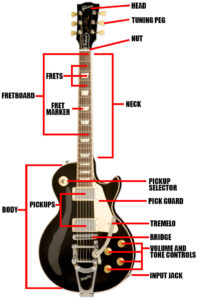The Speaker of the United States House of Representatives: The Power Broker of the House
7 min read
The Speaker of the United States House of Representatives: The Power Broker of the House
When you think about the top job in the United States, the President probably comes to mind first. But there’s another power player lurking in the wings, orchestrating political dramas, and making things happen on Capitol Hill. That person is none other than the Speaker of the United States House of Representatives. Sure, the title is a mouthful, but it’s a role that’s been around for a while—since 1789, to be exact. So, what exactly does the Speaker do? And why should you care? Well, buckle up, because we’re about to dive into the world of politics, power, and… speeches?
What Does the Speaker Actually Do?
The Speaker of the United States House of Representatives isn’t just the person who gets to wield the gavel and shout “Order!” in a crowded room full of politicians. The role is much more than that. The Speaker is the presiding officer of the House, meaning they get to call the shots during House meetings. This person decides which bills get a chance to be debated and which ones gather dust in the corner. So, if you’ve ever wondered why some laws get passed and others don’t, you might want to look at who’s holding the gavel.
The Speaker is also the leader of the majority party in the House of Representatives. This means they have to juggle not only the tasks of managing House business but also keeping their party members in line. It’s a bit like herding cats, but with a lot more suits and ties. Oh, and did we mention that the Speaker is second in line to the presidency? That’s right—if the President and the Vice President are both unable to serve, it’s time for the Speaker to step up. So, if you’re eyeing that role, you might want to brush up on your Presidential skills just in case.
A Brief History of the Speaker’s Role
The Speaker of the United States House of Representatives may not always be in the limelight, but the role has certainly seen its fair share of drama. The first Speaker, Frederick Muhlenberg, probably had no idea what he was getting into back in 1789. Since then, there have been over 50 different Speakers, each with their own style and approach. Some were charismatic, some were reserved, and others were, well, just there.
One of the most famous Speakers was Henry Clay, who served three different terms in the early 19th century. Clay was known for his ability to negotiate and bring about compromises. Think of him as the ultimate political peacemaker, or maybe just the guy who always brought donuts to meetings. Either way, he got things done.
Then there’s Nancy Pelosi, the first woman to hold the position of Speaker of the United States House of Representatives. Pelosi has made headlines for her leadership style, her knack for navigating complex political waters, and her impressive ability to stand her ground—even in high heels. She’s proof that the Speaker’s gavel isn’t just for the boys’ club anymore.
The Power of the Gavel
The Speaker’s gavel isn’t just a fancy piece of wood—it’s a symbol of power. When the Speaker bangs the gavel, it’s not just to get everyone’s attention (though that does help). The gavel signifies that the Speaker is in control of the House proceedings. It’s the political equivalent of saying, “Hey, I’m talking here!”
One of the most important powers of the Speaker of the United States House of Representatives is the ability to set the legislative agenda. The Speaker decides which bills come up for a vote and when. This means they can push forward legislation that aligns with their party’s goals or hold back bills that they don’t support. It’s a bit like being the DJ at a party—you get to decide what songs get played, and which ones are left on the playlist.
But it’s not all fun and games. The Speaker also has to ensure that the House runs smoothly. This means working with both parties to find common ground, a task that can be as challenging as convincing a cat to take a bath. The Speaker needs to be a skilled negotiator, a savvy politician, and sometimes, a magician. After all, getting hundreds of representatives to agree on something isn’t easy.
The Speaker’s Influence Beyond the House
While the Speaker of the United States House of Representatives has significant power within the House, their influence extends beyond those walls. The Speaker is often seen as the face of their party in the House, representing their party’s interests on national issues. They regularly appear in the media, explaining their party’s stance on various topics, and sometimes even sparring with the President. It’s like a political talk show, but with higher stakes and fewer commercial breaks.
The Speaker also plays a crucial role in fundraising for their party. They travel across the country, attending events, and raising money to support their party’s candidates. It’s not uncommon for the Speaker to bring in millions of dollars, which helps ensure that their party can compete in elections. So, if you ever see the Speaker shaking hands and kissing babies, it’s probably part of a strategic plan to keep their party in power.
Challenges of Being the Speaker
Being the Speaker of the United States House of Representatives isn’t all power trips and photo ops. The job comes with its fair share of challenges. For one, the Speaker has to balance the interests of their party with the needs of the country. It’s a tightrope walk that requires a lot of skill—and sometimes a good sense of humor.
Then there’s the issue of dealing with the opposition. The Speaker often finds themselves at odds with the minority party, leading to heated debates and political showdowns. It’s like a game of chess, where every move is scrutinized, and one wrong step can lead to a checkmate. But instead of pawns and bishops, you’re dealing with lawmakers and legislation.
The Speaker also has to deal with the ever-present pressure of public opinion. In today’s world of social media and 24-hour news cycles, every word the Speaker says is analyzed, criticized, and meme-ified. It’s like being on a reality TV show, but with a lot more C-SPAN and a lot less drama. Okay, maybe there’s still a lot of drama.
The Future of the Speaker’s Role
As the political landscape continues to evolve, so too does the role of the Speaker of the United States House of Representatives. With each new Speaker, the job takes on a slightly different shape, adapting to the needs of the times. In recent years, we’ve seen Speakers who are more media-savvy, more willing to take bold stands, and more focused on uniting their party.
The future Speakers will likely face new challenges, such as navigating the complexities of social media, addressing the growing polarization in politics, and finding ways to engage with a younger, more diverse electorate. But one thing is for sure—the Speaker will continue to play a crucial role in shaping the direction of the country.
A Day in the Life of the Speaker
You might be wondering what a typical day looks like for the Speaker of the United States House of Representatives. Well, it’s not all coffee breaks and gavel-banging. The Speaker’s day is packed with meetings, briefings, and negotiations. They have to stay on top of the latest developments in policy, keep tabs on what’s happening in their party, and be ready to address the media at a moment’s notice.
Oh, and did we mention the speeches? The Speaker gives a lot of them. Whether it’s addressing the House, speaking at a party event, or giving a press conference, the Speaker has to be a skilled orator. It’s like being in a never-ending debate class, but with the whole world watching. No pressure, right?
Conclusion: The Speaker’s Balancing Act
The Speaker of the United States House of Representatives is a position of great power and responsibility. It’s a role that requires a unique blend of leadership, political savvy, and sometimes, a good sense of humor. Whether it’s navigating the complexities of legislation, keeping the party in line, or representing their party’s interests on the national stage, the Speaker plays a pivotal role in shaping the future of the country.
So, the next time you hear someone mention the Speaker, remember that there’s a lot more to the job than just banging a gavel. It’s a position that demands respect, commands influence, and yes, occasionally requires the patience of a saint. But above all, it’s a role that’s crucial to the functioning of American democracy. And if nothing else, it’s a great way to get your own fancy office on Capitol Hill.



